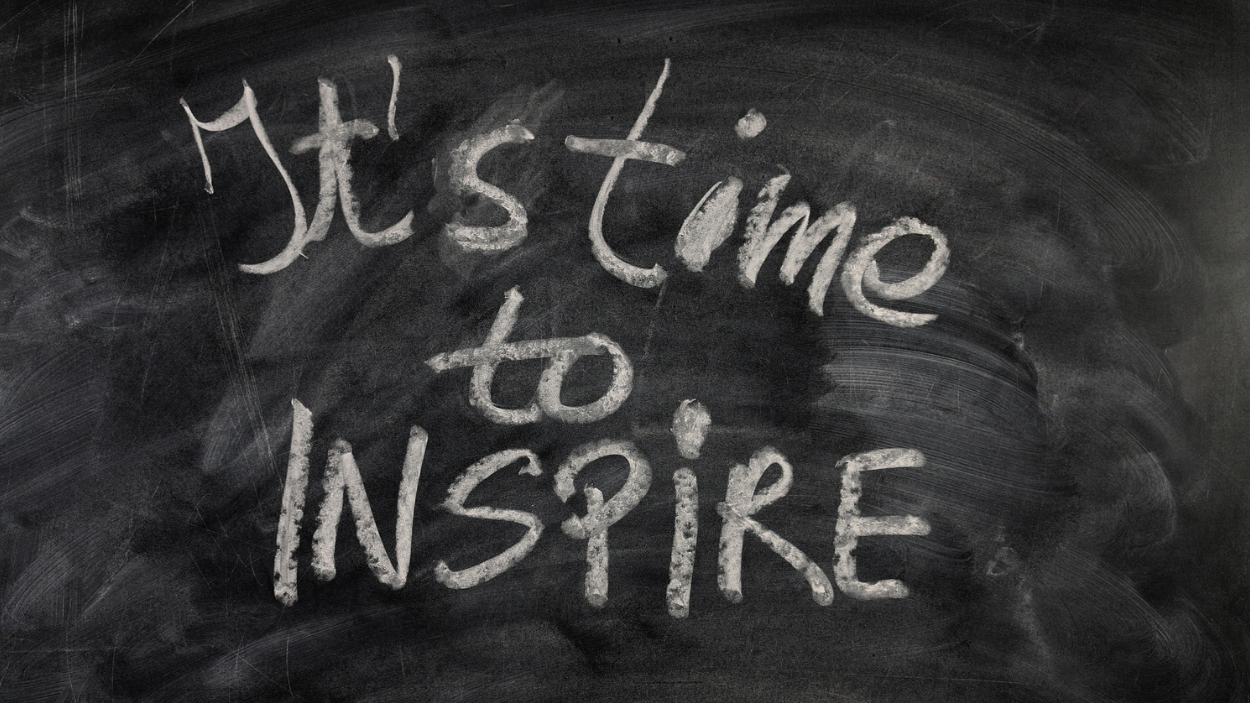TOP TEN FOR MASTER TEACHERS
1. KNOW THE VALUE OF PERSONAL ENERGY Music is energy supported by aural motion. Whether it is the energy the teacher exudes from the podium, or the energy required to sustain a rigorous class schedule, or meet the performance demands, or take care of the organizational obligations, the time-on-task for a music teacher is never-ending and we must face the fact the music teacher SETS THE PACE for all those students who are part of the various ensembles and classes. Our best energy source is: proper diet, ample rest, a personal sense of balance, and a positive approach to our professional mission.
2. EXPRESS APPRECIATION In every situation we are either appreciating or depreciating our environment, our given climate, the atmosphere around us. When we appreciate a student, a colleague, an administrator, a parent, we lift ourselves as well as the recipient of the acknowledgment. In turn when we depreciate those around us with sarcasm or cynicism we also chip away at our own self-confidence. The successful educators are quick to recognize (and support) individual and group growth and development; simultaneously they are also focusing on areas where improvement is wanted-andneeded. Musical success is an ever-changing combination of positive reinforcement (appreciation) strategically mixed with the never-ending quest for EXCELLENCE.
3. EXEMPLIFY OPTIMISM Every student wants to be a member of a quality organization. While there are certainly occasions when the rigorsof-learning require a mature and serious approach, the successful teacher always finds victories throughout the process. Music is a language of EXPRESSION that affords the learner to FEEL as well as THINK. To discourage (remove the courage) may push the student away from the goal; whereas encouragement (creating the presence of courage) will oftentimes serve as the needed momentum for the student to embrace the challenges-at-hand. We certainly must avoid FALSE PRAISE, but we can establish an optimistic approach to tackling the curricular objectives.
4. AVOID THE GAME OF COMPARISON We live in a competitive society, and – like it or not – we have auditions for chair placements, elections for officers, tryouts for guard captains, etc., etc. Despite these built-in traditions, the successful educators focus on intrinsic motivation (the opportunity to learn and to make great music) rather than extrinsic motivation (the chance to score higher than the neighboring school at a festival). If the goal is to reach a high level of musical excellence, then the emphasis is on the process rather than the product, and if the process is supported by the theme of QUALITY MUSIC MAKING, the product/outcome will reflect the investment…and that might show up as a very high evaluation from a panel of adjudicators, or simply a sense of musical achievement from the members of the ensemble, all guided by the music teacher.
5. PUT PEOPLE FIRST As noted author Stephen Covey says, “Choose to understand before being understood.” Each day we have budding young artists sit in front of us with one burning question in their inquisitive minds,” What will we do in MUSIC class/rehearsal today?” They chose to be in MUSIC because they want to play, to sing, or to dance; they want to EXPRESS. When they sense we are confident about their abilities (as well as our own) and that we CARE for them as fellow musicians, the possibilities are at the limits of our imagination. It’s back to he old adage, “The students don’t care how much you know, they want to know how much you care.” Please indulge a personal editing that would read: “The students want to know how much you CARE and (when they do) they will then care how much you know.”
6. BE WILLING TO FAIL This paradoxical concept is one of the masked secrets of successful people. We know failure is part of the pathway to high-level achievement. Growth, in any aspect of life requires risk-taking; one must enter the realm of the unknown and be willing to be disappointed while refusing to turn back until there is a sense of satisfaction that only comes from attaining new understanding and a greater awareness of the possibilities at hand. To be in a state of creativity we must relinquish control and overcome fear…in essence we must persevere in our ongoing climb to a new summit of quality regardless of the number of times we stumble and fall. Only those who are willing to risk going too far will ever find out how far they can go. PERSISTENCE is our most important companion in this quest.
7. THINK CREATIVELY We live in a fast-paced society, our students are programmed to move quickly, therefore we must open our minds to new ways of thinking and being. If we do not we are doomed to: remain-the-same; status quo, predictable, boring, simply going through the motions, STALE. Rich rewards go to those who stand back and see the bigger picture, those who seek new opportunities, and those who look for ways to create artistic and emotional beauty within the learning environment. Put meaning into everything by interpreting the present so it serves as a guide the future, it will determine whether you flourish of flounder. Creative thinking can be the turning point in bringing NEW LIFE to your entire program.
8. MAINTAIN A HEALTHY SENSE OF HUMOR Unfortunately many have linked “sense of humor” with lack-of-substance. In the communication world, humor is the shortest distance between two people. Let’s not confuse humor with flippancy, silliness or mere entertainment; humor is the way the human psyche creates emotional release. One of the traits of superior teaching is the ability to efficiently and effectively connect with students, and there are certainly times when a hearty laugh or an amusing interpretation will serve as the best teaching tool. And, above all, be able to laugh at yourself. Teachers are humans and humans make mistakes, so we must be willing to stub-our-toes and join in the laughter, then we can all take a deep breath and get back to work. Humor is a lubricant of the mind and soul; keep smiling, everything will run much smoother.
9. ASSUME THE POSTURE OF A LEADER OF THE ARTS Stand tall for ARTS in your school. In our urgency to “prepare the music, give the lessons, direct the sectional, file the music, develop the budget, etc., etc., etc.,” we fail to share the good new concerning the value of music to those who are part of our educational community. To garner the support of our administrators, our fellow teachers, the booster/parents, and, YES, the students who are in our classes we must be bring this compelling data to the forefront. People need-to-know WHY the FINE ARTS play such a crucial role in educational blueprint, and we (as music educators) want to be the messengers of this extraordinary message. Carry the flag for ARTS. We are not integrating art into education, we’re educating through art.
10. ENJOY TEACHING MUSIC Certainly everything on the daily to-do list is not always pleasurable or fun; much of it can be mundane, utilitarian, and even mindless, however it seems like a small price to pay to have the opportunity to introduce a student to the priceless treasury of MUSIC. They cannot duplicate this KNOWING in any other facet of our educational community. There is no substitute for music; music itself is the reason to master the skills of music making. What greater gift could we possibly bring to a young impressionable mind? YOU ARE A TEACHER WHO MAKES A DIFFERENCE. This is the time of year when patterns are being established and the standards are being set; these will dictate what lies ahead as you join hands with your students in an ongoing musical adventure. In the words of Albert Schweitzer, “I don’t know what your destiny will be but one thing I know. The only ones among you who will be truly happy are those who have sought and found how to serve.”
…let the music begin…






